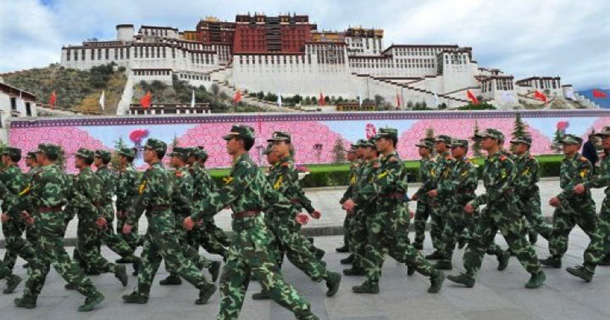 In its annual report, the United State’s State Department has expressed its concerns about “serious human rights abuses” taking place in the Tibetan Autonomous Region (TAR) under China’s administration. Released by the Secretary of States John Kerry on April 13, the report details a “severe repression of Tibet’s unique religious, cultural, and linguistic heritage”.
In its annual report, the United State’s State Department has expressed its concerns about “serious human rights abuses” taking place in the Tibetan Autonomous Region (TAR) under China’s administration. Released by the Secretary of States John Kerry on April 13, the report details a “severe repression of Tibet’s unique religious, cultural, and linguistic heritage”.
Arbitrary detention, denial of fair public trial, torture, arbitrary interference with privacy, restriction of movement, deprivation of the freedom of religion and discrimination are some of the numerous evidences of human rights violation perpetuated by the security forces there.
On the subject of self-immolation of Tibetans, the Chinese authorities are punishing the friends and relatives of the immolators since they are considered to be charged by law with “intentional homicide and subjected to punishment.” At least 11 people set themselves on fire as a sign of protest in the autonomous region in 2015.
Moreover, the US report depicts an important increase of military presence on the Tibetan plateau and restricted access for foreign journalists. In December 2013 the Washington Post reported that “North Korea is more accessible to foreign journalists than Tibet is.” Tibetan themselves see their access to the medias as controlled, and sharing information about protests or expressing discontent can be punished by detention. Most of the time these topics are avoided even in a private conversation in their home.
 Harsh conditions of arrest and detention occupy an important part of the report as well. Artists, members of the clergy,students and scholars seem to be the principal targets. Prisons’ treatment has led to the death of convicts in many cases, either following torture or because of denial of proper medical assistance. Last year, the monk Tenzin Delek Rinpoche died behind the bars because the police refused him access to medical care. Even after his death the authorities “denied requests from his family to return the body so traditional Tibetan Buddhist funeral rites could be conducted” reported the International Campaign for Tibet.
Harsh conditions of arrest and detention occupy an important part of the report as well. Artists, members of the clergy,students and scholars seem to be the principal targets. Prisons’ treatment has led to the death of convicts in many cases, either following torture or because of denial of proper medical assistance. Last year, the monk Tenzin Delek Rinpoche died behind the bars because the police refused him access to medical care. Even after his death the authorities “denied requests from his family to return the body so traditional Tibetan Buddhist funeral rites could be conducted” reported the International Campaign for Tibet.




 Print
Print Email
Email